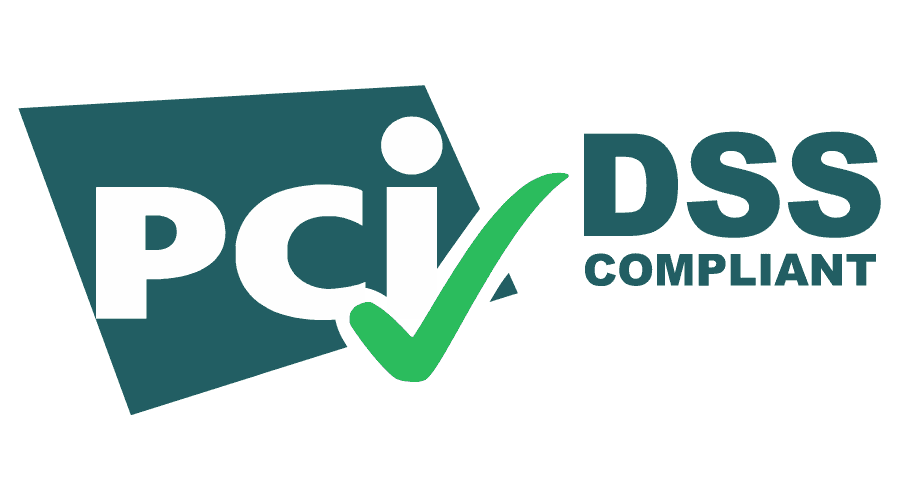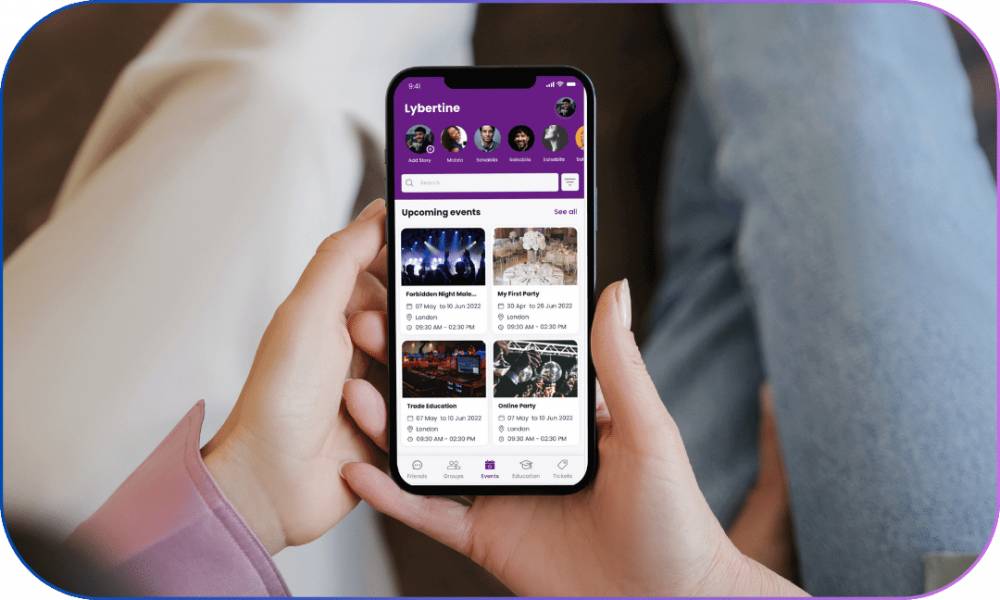
Boost Your Event Revenue with an Effective Event Ticketing System
Are you tired of struggling to maximize your event revenue?
Look no further! With an effective event ticketing system, you can take your event to new heights and achieve unprecedented success. Gone are the days of manual ticket sales and limited customer reach. In today's fast-paced digital world, it's crucial to stay ahead of the competition by embracing innovative solutions. By investing in a robust event ticketing system, you'll unlock a plethora of benefits that will skyrocket your revenue. From seamless ticket sales and secure payment processing to powerful marketing tools and enhanced attendee data insights, this system has it all. So, why settle for less when you can supercharge your event revenue and create an unforgettable experience for your attendees? Join the revolution and discover the endless possibilities of an effective event ticketing system. It's time to step up your game and make your event the talk of the town!
The Importance of Event Ticketing Systems
In the world of event management, having a reliable and efficient ticketing system can make all the difference. A well-designed event ticketing system serves as the backbone of your event, enabling you to streamline the ticketing process and maximize revenue. Gone are the days of manually selling tickets at the door or relying on outdated methods that limit your customer reach. With an effective event ticketing system, you can automate ticket sales, reduce administrative tasks, and provide a seamless experience for both event organizers and attendees.
One of the key benefits of using an event ticketing system is the ability to sell tickets online, opening up a world of possibilities for event promotion and sales. By leveraging the power of the internet, you can reach a broader audience and attract attendees from different parts of the world. This increased accessibility translates into higher ticket sales and ultimately, more revenue for your event. In addition, an online ticketing system eliminates the need for physical tickets, making the entry process smoother and more efficient.
But the benefits of an event ticketing system go beyond just selling tickets online. A robust system will provide you with valuable data and insights that can help you make informed decisions and optimize your event strategy. From attendee demographics and preferences to sales trends and marketing analytics, you'll have access to a wealth of information that can be leveraged to enhance the overall event experience and boost revenue. With the right event ticketing system in place, you'll be able to make data-driven decisions that can lead to higher ticket sales and increased attendee satisfaction.
Benefits of Using an Effective Event Ticketing System
When it comes to event revenue, an effective event ticketing system can be a game-changer. The benefits are numerous and can have a significant impact on your bottom line. Let's take a closer look at some of the key advantages of using an event ticketing system:
- Streamlined Ticket Sales: An event ticketing system automates the ticket sales process, making it quick and convenient for attendees to purchase tickets. With just a few clicks, potential attendees can secure their spot, eliminating the need for manual transactions or physical ticket distribution. This streamlined approach not only saves time and resources but also increases the chances of impulse purchases, leading to higher ticket sales.
- Enhanced Marketing Opportunities: An effective event ticketing system provides powerful marketing tools that can help you promote your event and attract more attendees. From customizable event pages and social media integration to email marketing campaigns and discount codes, these tools allow you to create targeted and persuasive marketing campaigns. By reaching the right audience at the right time, you can boost ticket sales and generate buzz around your event.
- Secure Payment Processing: With an event ticketing system, you can ensure secure and hassle-free payment processing for your attendees. By integrating with trusted payment gateways, you can offer a variety of payment options and guarantee the safety of sensitive customer information. This not only instills confidence in your attendees but also eliminates potential barriers to ticket purchase, resulting in higher conversion rates and increased revenue.
- Real-Time Reporting and Analytics: An event ticketing system provides you with real-time reporting and analytics, giving you valuable insights into your event's performance. From ticket sales and revenue tracking to attendee engagement and satisfaction metrics, you'll have access to a wealth of data that can inform your event strategy. By analyzing this data, you can identify areas for improvement, make data-driven decisions, and ultimately, maximize your event revenue.
- Improved Attendee Experience: An effective event ticketing system goes beyond just selling tickets; it enhances the overall attendee experience. With features like mobile ticketing, self-check-in, and personalized event recommendations, you can create a seamless and memorable experience for your attendees. By providing a user-friendly and intuitive ticketing process, you'll leave a lasting impression on your attendees, increasing the likelihood of repeat attendance and positive word-of-mouth.
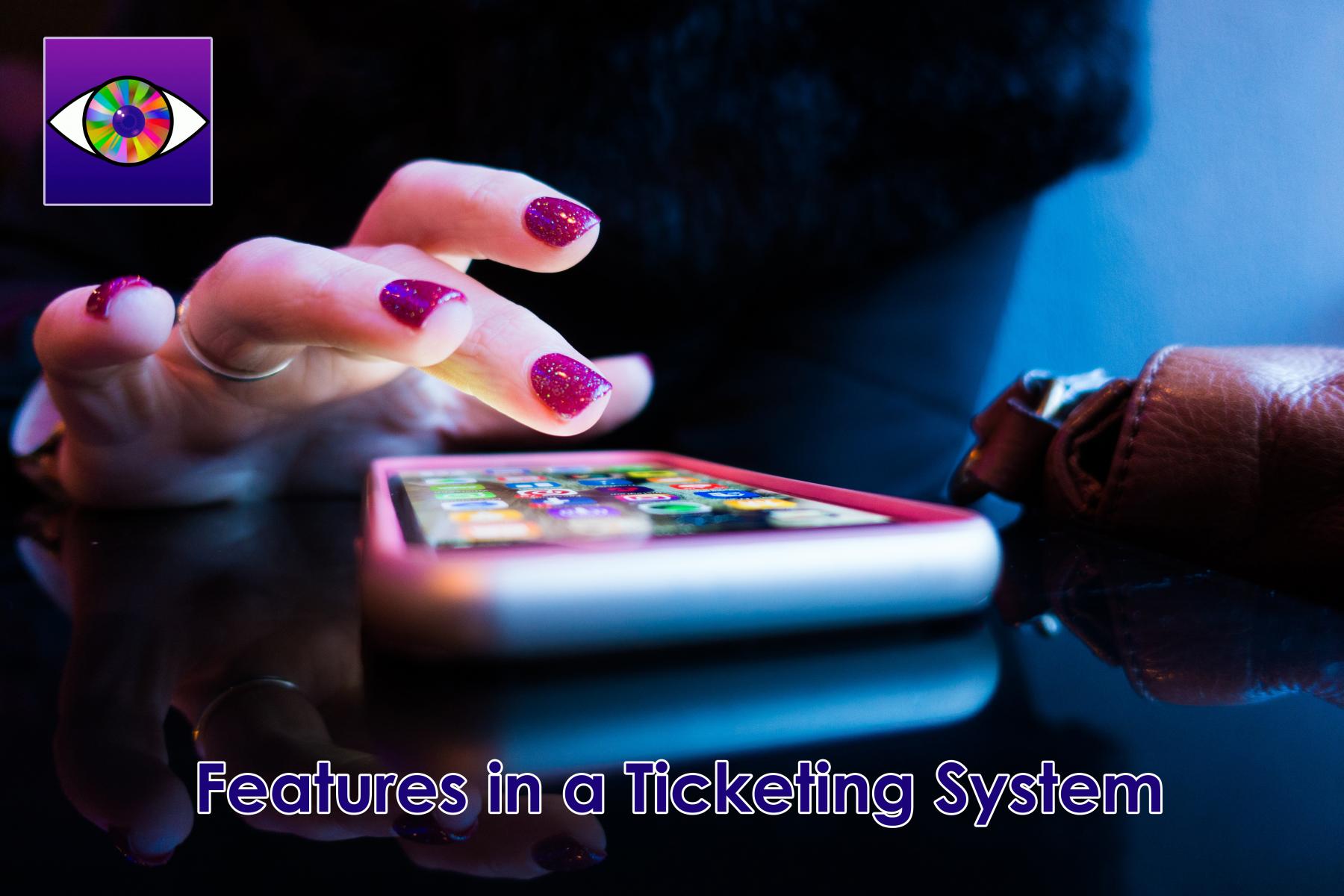
Features to Look for in an Event Ticketing System
When choosing an event ticketing system, it's essential to consider the features that will best meet your event's needs. While different systems offer varying capabilities, there are some key features that you should look for to ensure you get the most out of your investment. Here are a few features to keep in mind:
- Online Ticket Sales: Look for a system that enables you to sell tickets online, allowing attendees to purchase tickets conveniently from their devices.
- Secure Payment Processing: Ensure that the system integrates with trusted payment gateways to provide secure and seamless payment processing for your attendees.
- Customizable Event Pages: Look for the ability to create visually appealing and customized event pages that reflect your brand and resonate with your target audience.
- Marketing Tools: Consider systems that offer robust marketing tools such as email marketing, social media integration, and discount code management to help you promote your event effectively.
- Real-Time Reporting and Analytics: Look for a system that provides real-time reporting and analytics to help you track ticket sales, revenue, attendee engagement, and other key metrics.
- Mobile-Friendly Experience: With the increasing use of mobile devices, it's crucial to choose a system that offers a mobile-friendly experience for both event organizers and attendees.
By carefully considering these features and aligning them with your event goals, you can select an event ticketing system that will maximize your event revenue and enhance the overall attendee experience.
With the right system in place, you’ll be equipped to create a successful event from start to finish.Good luck and happy ticketing!
Thanks for your interest in Lybertine - we hope our guide has helped you find the right solution for your next event. If you have any further questions about our products or services, please don't hesitate
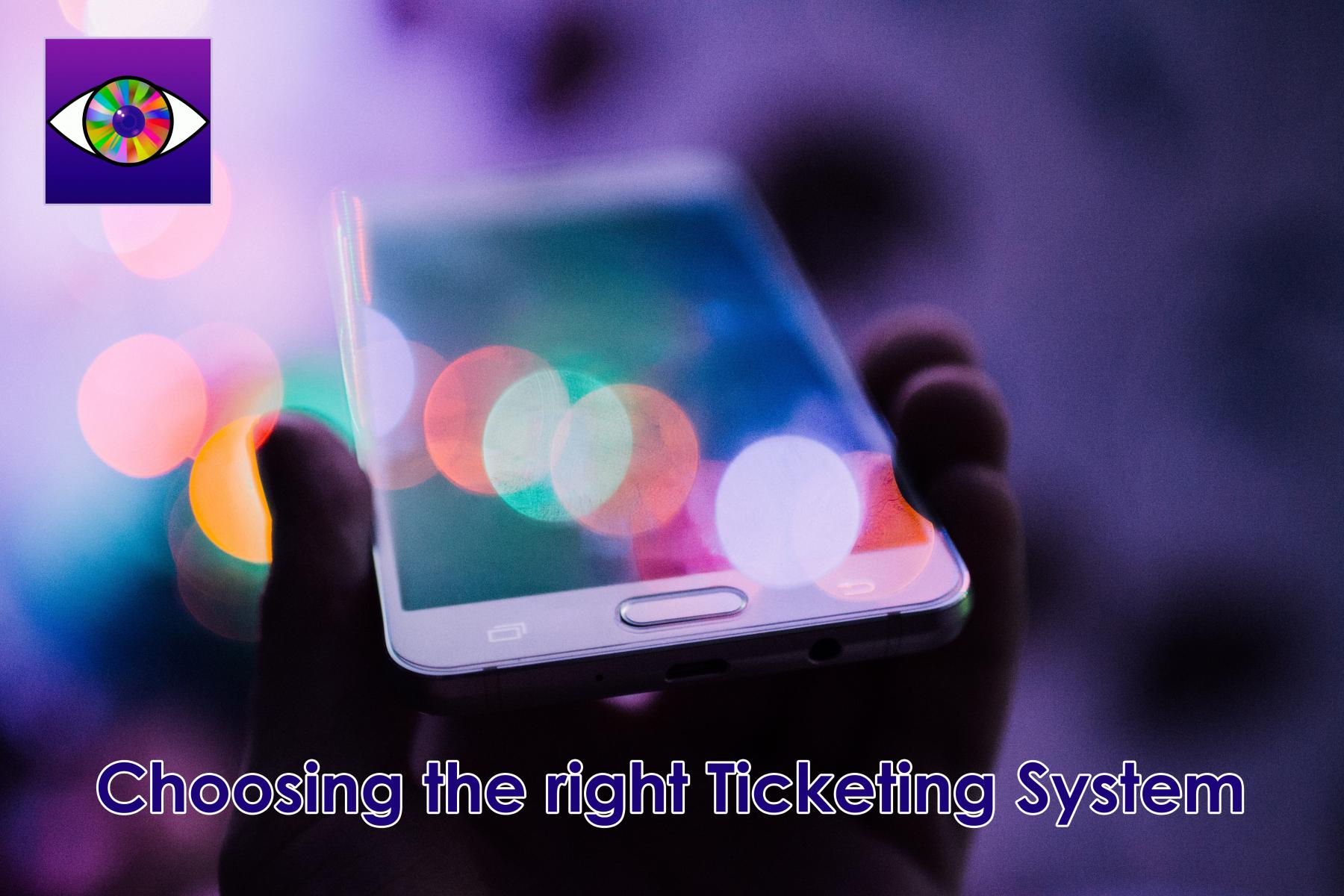
Choosing the Right Event Ticketing System for Your Needs
With so many event ticketing systems available in the market, choosing the right one for your event can be overwhelming. To ensure you make the best decision, it's important to evaluate your event's specific needs and consider the following factors:
- Event Size and Scale: Consider the size and scale of your event. If you're organizing a small-scale event, a simple and cost-effective ticketing system may suffice. However, for larger events with complex requirements, you may need a more robust and customizable solution.
- Ticket Types and Pricing: Evaluate the ticket types and pricing options you'll be offering. Some ticketing systems are better suited for events with multiple ticket tiers, discounts, or special promotions. Ensure that the system you choose can accommodate your specific requirements.
- Integration with Other Tools: Consider the tools and platforms you currently use for event management, marketing, and data analysis. Choose a ticketing system that seamlessly integrates with your existing tools to ensure a smooth workflow and data synchronization.
- Customer Support and Training: Evaluate the level of customer support and training provided by the ticketing system provider. Look for a system that offers comprehensive support options, including phone, email, and live chat, to address any issues or questions that may arise during the event planning and execution process.
- User-Friendliness: Consider the ease of use and intuitiveness of the ticketing system. A user-friendly interface will not only save you time and effort but also ensure a positive experience for both event organizers and attendees.
By carefully assessing these factors and conducting thorough research, you can select the right event ticketing system that aligns with your event's needs and helps you achieve your revenue goals.
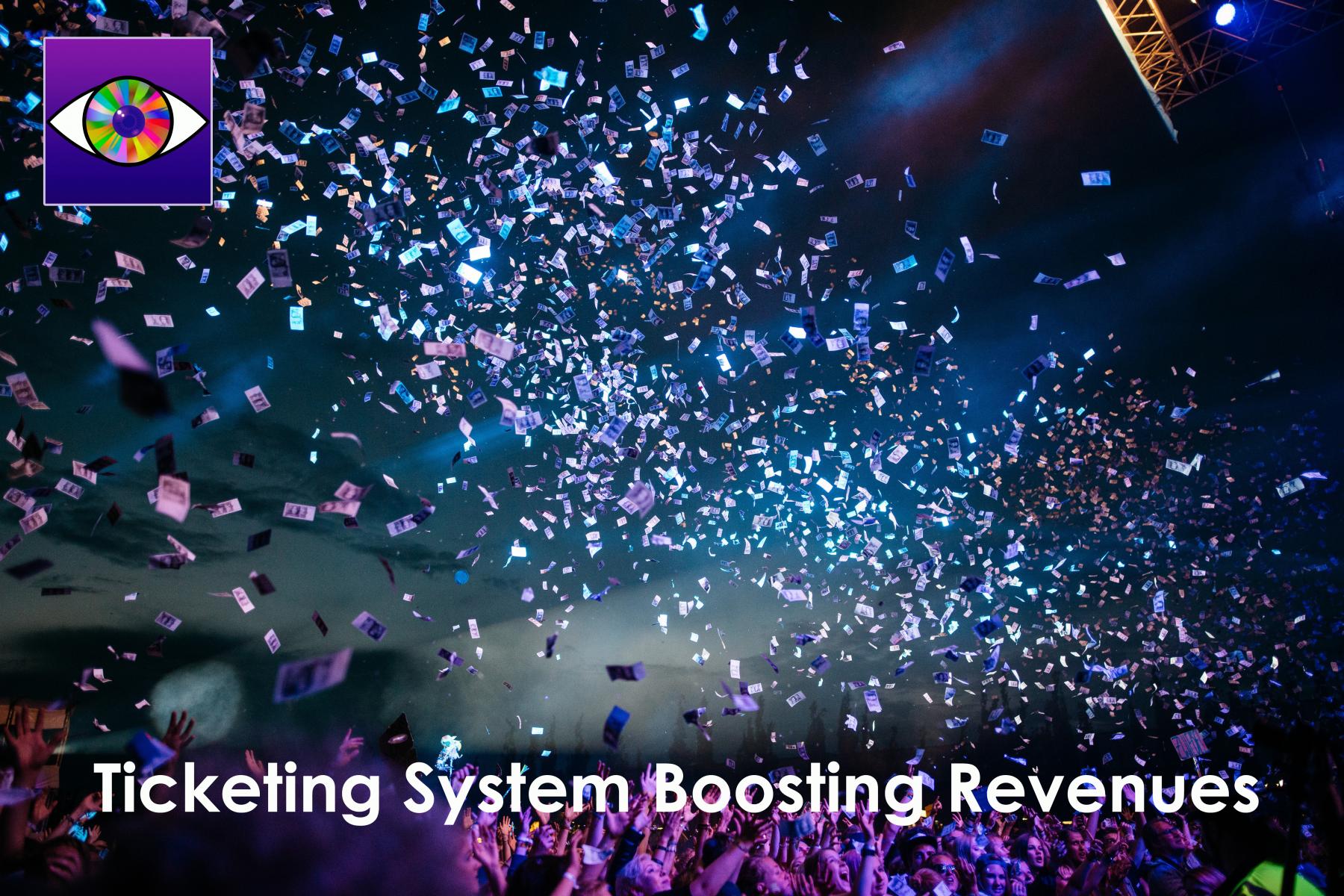
How an Event Ticketing System Can Boost Event Revenue
Wondering how an event ticketing system can actually boost your event revenue? Let's dive into some of the ways this powerful tool can make a significant impact on your bottom line:
- Increased Ticket Sales: By providing a seamless and convenient ticketing experience, an event ticketing system can increase ticket sales. With just a few clicks, potential attendees can secure their spot, eliminating any barriers or frustrations that may hinder ticket purchase. This simplified process encourages impulse purchases and drives higher sales, resulting in increased event revenue.
- Targeted Marketing Campaigns: An effective event ticketing system offers robust marketing tools that can help you create targeted campaigns to reach the right audience. From email marketing and social media integration to discount codes and personalized recommendations, these tools enable you to promote your event effectively and generate buzz. By reaching the right people at the right time, you can drive ticket sales and maximize revenue.
- Data-Driven Decision Making: With an event ticketing system in place, you'll have access to valuable data and insights that can inform your event strategy. From attendee demographics and preferences to sales trends and marketing analytics, this data can help you make data-driven decisions. By analyzing this data, you can identify areas for improvement, optimize your marketing efforts, and ultimately, maximize your event revenue.
- Streamlined Operations: An event ticketing system automates various administrative tasks, saving you time and resources. From ticket sales and payment processing to attendee check-in and data management, these systems streamline operations and free up your team to focus on other revenue-generating activities. This increased efficiency not only improves the overall event experience but also enables you to allocate resources strategically, resulting in higher revenue.
- Enhanced Attendee Experience: By providing a user-friendly and intuitive ticketing process, an event ticketing system enhances the overall attendee experience. Features like mobile ticketing, self-check-in, and personalized event recommendations create a seamless and memorable experience for your attendees. This positive experience increases attendee satisfaction, encourages repeat attendance, and generates positive word-of-mouth, ultimately leading to higher event revenue.
When implemented effectively, an event ticketing system can be a powerful tool that drives ticket sales, optimizes marketing efforts, streamlines operations, and enhances the overall attendee experience. By leveraging the features and capabilities of the system, you can maximize your event revenue and create a successful and memorable event.
Best Practices for Implementing an Event Ticketing System
Implementing an event ticketing system requires careful planning and execution. To ensure a successful implementation and maximize your event revenue, consider the following best practices:
- Define Your Event Goals: Before implementing an event ticketing system, clearly define your event goals and objectives. Identify the key metrics you want to track and the outcomes you want to achieve. This will help you select a system that aligns with your goals and allows for effective measurement and evaluation.
- Choose the Right System: Conduct thorough research and choose an event ticketing system that meets your event's specific needs. Consider factors such as event size, ticket types, pricing options, integration capabilities, and user-friendliness. Select a system that will provide the features and functionality required to achieve your revenue goals.
- Plan Your Marketing Strategy: Develop a comprehensive marketing strategy that leverages the marketing tools and capabilities offered by the ticketing system. Create targeted campaigns, utilize social media platforms, and implement email marketing to promote your event effectively. Leverage the system's features to maximize your marketing efforts and drive ticket sales.
- Train Your Team: Provide comprehensive training to your team on how to use the event ticketing system. Ensure that they are familiar with the system's features and functionalities and understand how to leverage them to their full potential. This will enable your team to effectively manage ticket sales, provide support to attendees, and make data-driven decisions.
- Integrate with Other Tools: If you use other event management, marketing, or data analysis tools, ensure that your event ticketing system seamlessly integrates with them. This will enable smooth data synchronization, streamline workflows, and provide a holistic view of your event's performance. Integration will also eliminate manual data entry and reduce the risk of errors.
- Test and Iterate: Before launching your event ticketing system, thoroughly test all aspects of the system, including ticket sales, payment processing, attendee check-in, and data management. Conduct test runs and simulations to identify any potential issues or areas for improvement. Iterate and refine the system based on the feedback received to ensure a seamless and error-free experience for both event organizers and attendees.
By following these best practices, you can ensure a smooth implementation of your event ticketing system and maximize your event revenue. Remember, the success of your event relies heavily on the effectiveness of your ticketing system, so invest the time and effort required to implement it successfully.
Case Studies of Successful Events Using an Effective Ticketing System
To truly understand the impact of an effective event ticketing system on event revenue, let's explore some real-life case studies of successful events that have leveraged this powerful tool:
Case Study 1: Music Festival X
Music Festival X, an annual three-day music festival, was facing challenges in maximizing their event revenue. They realized that their manual ticketing process was time-consuming and limited their reach. To address these issues, they implemented an event ticketing system that allowed attendees to purchase tickets online and provided a seamless ticketing experience.
With the new ticketing system in place, Music Festival X saw a significant increase in ticket sales. The convenience of online ticketing and secure payment processing encouraged more attendees to purchase tickets, resulting in higher revenue. The system's marketing tools, such as social media integration and email campaigns, helped create buzz around the event and attract a larger audience.
Moreover, the system provided real-time reporting and analytics, enabling Music Festival X to make data-driven decisions. They analyzed attendee demographics and preferences, identified popular artists and genres, and optimized their marketing efforts accordingly. This data-driven approach resulted in targeted marketing campaigns and increased ticket sales, further boosting event revenue.
Case Study 2: Conference Y
Conference Y, a leading industry conference, was struggling to streamline their ticketing process and provide a seamless experience for their attendees. They implemented an event ticketing system that offered features like mobile ticketing and self-check-in to enhance the attendee experience.
The ticketing system's mobile-friendly interface and self-check-in capabilities allowed attendees to easily access their tickets and check-in at the event. This eliminated the need for physical tickets and long queues, resulting in a smoother and more efficient entry process. The enhanced attendee experience led to increased attendee satisfaction.

